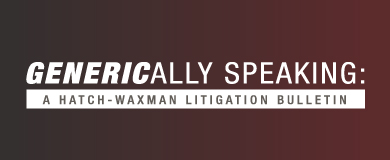- Acumen Powered by Robins Kaplan LLP®
- Affirmative Recovery
- American Indian Law and Policy
- Antitrust and Trade Regulation
- Appellate Advocacy and Guidance
- Business Litigation
- Civil Rights and Police Misconduct
- Class Action Litigation
- Commercial/Project Finance and Real Estate
- Corporate Governance and Special Situations
- Corporate Restructuring and Bankruptcy
- Domestic and International Arbitration
- Health Care Litigation
- Insurance and Catastrophic Loss
- Intellectual Property and Technology Litigation
- Mass Tort Attorneys
- Medical Malpractice Attorneys
- Personal Injury Attorneys
- Telecommunications Litigation and Arbitration
- Wealth Planning, Administration, and Disputes
Acumen Powered by Robins Kaplan LLP®
Ediscovery, Applied Science and Economics, and Litigation Support Solutions
-
June 1, 2022Chambers USA Recognizes Five Robins Kaplan Practice Groups And 17 Lawyers In 2022 Guide
-
June 1, 2022Seasoned Attorney Joins Firm’s Business Litigation Group
-
May 26, 2022Shira Shapiro Named Woman of Promise By The Pearl Society
-
June 3, 202219th Annual Advanced Insurance Law
-
June 9, 2022Building Your Brand: Perspectives and Insights from a Diverse Bar
-
June 10, 2022LGBTQ Legal Services: Transgender Name Change Clinic
-
May 24, 2022Briefly: Seeking Fees and Costs While on Appeal
-
May 19, 202211th Circ. Ban On Service Awards May Inhibit Class Actions
-
May 13, 2022Trademark Applications and the Murky Waters of Subject Matter Jurisdiction
-
June 2, 2022Sandberg Stepping Down as Meta COO After 14 Years
-
June 1, 2022Markets Revert to Recent Form as Pessimism Takes Hold
-
May 27, 2022Unexpectedly Strong Retail Sales Pull Markets Back from the Brink
Find additional firm contact information for press inquiries.
Find resources to help navigate legal and business complexities.
Reckitt Benckiser Pharms., Inc. v. Dr. Reddy’s Labs. S.A.
The court applied the dedicated disclosure rule to find no infringement.
October 20, 2017

Case Name: Reckitt Benckiser Pharms., Inc. v. Dr. Reddy’s Labs. S.A., No. 14-1451-RGA, 2017 U.S. Dist. LEXIS 140633 (D. Del. Aug 31, 2017) (Andrews, J.)
Drug Product and Patent(s)-in-Suit: Suboxone® (buprenorphine HCl / naloxone HCl); U.S. Patent No. 8,017,150 (“the ’150 patent”)
Nature of the Case and Issue(s) Presented: The ’150 patent covers Suboxone, a sublingual film used to treat opioid dependence. Plaintiffs, the holder of the ’150 patent and the patent’s exclusive licensee, brought suit against Defendants, alleging that Defendants’ generic product infringed the ’150 patent. In response, Defendants argued that their product did not infringe the ’150 patent and, even if it were to, the ’150 patent was invalid as obvious. The court agreed with Defendants that their product did not infringe the ’150 patent, but also found that Defendants had not met their burden in proving that the ’150 patent was obvious.
Why Defendants Prevailed: Reviewing the specification and the claims of the ’150 patent, the court determined that the patent claimed only the use of polyethylene oxide and hydrophobic cellulosic polymers, but the specification described polyvinyl pyrrolidone (“PVP”) as an alternative to hydrophobic cellulosic polymers. Because PVP was described in the specification but was not claimed, the court applied the dedicated disclosure rule from PSC Computer Prods., Inc. v. Foxconn Int’l, Inc., 355 F.3d 1353 (Fed. Cir. 2004). The dedicated disclosure rule provides that “if one of ordinary skill in the art can understand the unclaimed disclosed teaching upon reading the written description, the alternative matter disclosed has been dedicated to the public.” PSC, 355 F.3d at 1360. Thus, the court ruled that the use of PVP, as in the generic product, had been dedicated to the public and could not infringe the patent.
Having determined that the ’150 patent was not infringed, the court nevertheless performed a validity analysis of the patent. Because the cited prior art did not disclose the elements of the claims of the ’150 patent, and even taught away from the claimed invention, Defendants did not meet the burden to prove the ’150 patent invalid.
Related Publications
Related News
If you are interested in having us represent you, you should call us so we can determine whether the matter is one for which we are willing or able to accept professional responsibility. We will not make this determination by e-mail communication. The telephone numbers and addresses for our offices are listed on this page. We reserve the right to decline any representation. We may be required to decline representation if it would create a conflict of interest with our other clients.
By accepting these terms, you are confirming that you have read and understood this important notice.
